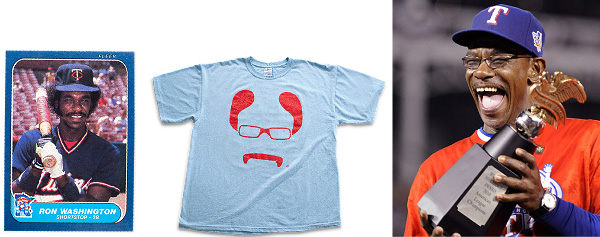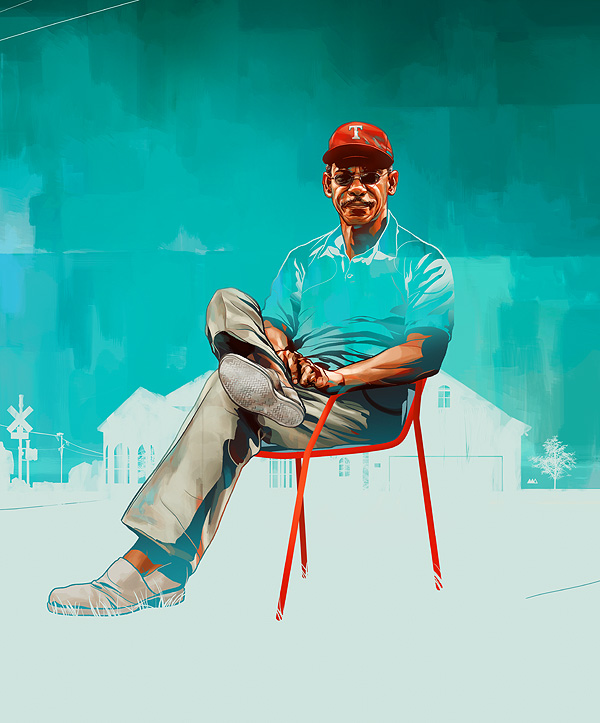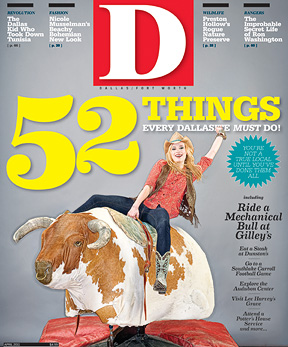
When he finally made the Twins roster as a utility in–fielder in 1981, he was nearly in his 30s. He’d play second base one night, pinch hit the next, then not see any action for a week. But he had a reputation as a hard worker. “If he messed up, or even if he dropped a ball in practice, he’d take responsibility immediately,” says Randy Bush, a teammate from ’82 to ’86 and a fellow New Orleanian. Bush was primarily a pinch hitter in those days and spent plenty of nights in the dugout next to his friend. Day after day, no matter how long he’d been sitting on that bench, Washington would never miss the chance to stand up and congratulate his teammates as they returned to the dugout.
“Ron was always intense,” Bush says. “He wasn’t about to take anything for granted.”
The two of them used to go to the ballpark early and play pepper to make sure they were fresh. They’d also train together back in New Orleans in the off-season. They used to meet in the morning and run for miles. Then they’d throw each other batting practice. Then they’d lift weights. Five days a week, like factory workers. If it was raining too hard, they’d spend the day running sprints inside a gym.
Ron Maestri was the head coach of the baseball team at the University of New Orleans at the time, and he let the two pros work out in the school facilities. “I used to get my players together and tell them to watch those guys,” Maestri says. “I’d say, ‘This is what it takes to make it in the big leagues.’ ”
These days Maestri is an executive with the New Orleans Zephyrs minor league club, but he still talks to both men often. “He always had this great ability to just be the same every day,” Maestri says. “When things are hard, Wash doesn’t change. When things are good, Wash doesn’t change.”
Most of his career has been long bus trips and strange beds, a long-distance call home every night and a life in a suitcase. He lived in the shadows of the game. Even when he eventually made it to the majors, not even the most dedicated stats geeks knew the name Ron Washington. He was a .261 batter who never hit more than five homers in a season.
“Ron and I weren’t superstars,” says Bush, now the assistant general manager of the Chicago Cubs. “We didn’t have the natural talent or size some of those guys had. We were never guaranteed a spot. We had to go into spring training ready to play.”
One year, Bush led the American League in pinch hits and twice more he finished in the top three. He went on to win two World Series rings with the Twins.
That’s not what happened to Washington, though. He was released in spring training before the ’87 season, the year the Twins won their first World Series. He watched his buddies—the men he’d congratulated from the dugout for six years—win a championship without him. He spent a year with the Baltimore Orioles, a year with the Cleveland Indians, and seven final games with the Houston Astros in 1989—where he was briefly a teammate of Nolan Ryan’s.
When no more major league teams wanted him, he spent another year in the minors, finishing his career the way he started it, as a catcher. And when no more minor league teams had room for him, he played in a seniors’ league in Daytona Beach until the league folded in December of 1990.
Years later, on rare occasions when the mood got serious, Bush would ask his friend about 1987, about getting cut the year the team won the World Series. “I know I would have been so mad, but I never heard him complain,” Bush says. “He said he truly has no bitterness over it. He told me, ‘It is what it is. You just gotta let it go and turn the page. You gotta keep working. What else can you do?’ That’s always stayed with me.”
His managing career began the same way his playing career did, with several years spent moving up and down through minor leagues. He didn’t get a chance to coach on a major league staff until a former Twins teammate, Billy Beane, became the Oakland A’s general manager. Beane, too, had spent nights in the dugout with Ron Washington, listening to him chatter. He knew his scrappy history and he remembered the positive attitude and focus on fundamentals. He brought him on as the first base coach.
The new coach brought the creeds he’d been taught so many years ago at the academy: footwork, situational awareness, practicing hard even if you probably won’t play, playing today like yesterday never happened. He also brought the infectious smile of a man who loves his job.
Within a few years, he’d garnered a reputation as a man who could make a professional infielder out of anyone. Author Michael Lewis took note of him when he wrote the 2003 book Moneyball: the Art of Winning an Unfair Game. “Wash’s job was to take the mess Billy Beane sent him during spring training and make sure it didn’t embarrass anyone by opening day,” Lewis wrote. “He had a gift for making players want to be better than they were—though he would never allow himself such a pretentious thought.” He also noted how wonderfully quotable the entertaining coach can be, writing, “Ron Washington can’t open his mouth without saying something that belongs in Bartlett’s.”
Despite Washington’s fine work as a coach, nobody wanted to give him a chance to manage. And that included Billy Beane, who interviewed him—and passed him over—several times.
“That definitely hurt him,” Maestri says. “He felt like he would make a good manager, and he wanted people to believe him.”
Though they were longtime friends, Beane was, at heart, a stats man. And Washington was, statistically speaking, 100 percent heart. Even if he wasn’t beloved by management, his players adored him. A’s third baseman Eric Chavez actually gave the coach one of his Gold Glove trophies. And when the trophy was destroyed in the hurricane, Chavez asked Rawlings to commission another one and gave him that.
Washington was in Baltimore the night the storm hit. His wife and family had driven to Atlanta. What the storm itself spared, the floods did not.
“He lost everything,” Maestri says. “Every room in the house was destroyed.”
He had good insurance, but both past and present players wanted to help him, to chip in. Jason Giambi, by then in the middle of his $120
million contract with the Yankees, slipped him a check for $25,000 before a game one night.
It was one more thing to endure for Washington. But when the insurance company finally got around to checking out the damage, and the supplies and construction crews eventually became available, they got to work rebuilding the house one room at a time. All told, it took nearly five years to rebuild Washington’s house, but he never complained. Instead, he went to the ballpark every day and did his job.
“For Ron, baseball is an escape,” Maestri says. “When he’s at the ballpark with all his friends, that’s like a personal heaven for him.”
His house was still under repair in November 2006, when he finally got his big league managing job—not from his A’s, but from their rival Texas Rangers—reportedly sealing the deal a few days earlier by impressing Jon Daniels and Tom Hicks at a backyard barbecue. He promised that the Rangers would no longer rely on a power-hitting offense alone. He announced the team would finally learn to play small ball. They’d work the counts, take the extra bases, never stop applying pressure. He said the Ron Washington era would include a focus on defense, which would, in turn, help out the pitching.
It sounded good in theory—even if it sounded strange coming out of his mouth. But it was slow going at first. There were reports that certain veterans were feuding with the new manager. In 2007, his first season with the Rangers, the team went 75-87, but a few of those veterans weren’t around by the end of the year.
In the 2008 season, they continued to struggle but finished the year in second place in the division. In 2009, the team was in playoff contention—and in first place for short stretches—late in the summer. Rangers fans had something to believe in for the first time in years. Then came that infamous All-Star break.
He’s never discussed the details in public. He said he met up with old friends in Anaheim. They were out drinking. One thing led to another. A few days later, there was a knock on the door, a urine sample, a phone call to the league’s employee assistance number. There was the tense conversation with Jon Daniels and Nolan Ryan, an offer to resign—if that’s what they wanted. He’d do anything to save his career. He couldn’t bear the thought that, after 39 years of giving everything to the game of baseball, this would be what he’d be known for.
They told him he could stay if he agreed to counseling and regular tests. But they warned that if the news got out, nobody would believe a 57-year-old manager just decided to try cocaine for the first time in his life.
Then the news broke. The national sports media descended upon Surprise, Arizona, for what was one of the more bizarre stories of the year. After all he’d been through in life, Ron Washington had never felt shame like this. This, he did to himself.
He called his old friend from the academy, but the old chatterbox catcher could barely get his words out. “He said he felt like he let me down,” White says. “I assured him he hadn’t. I said, ‘You’ve been accountable. You admitted to what you did. You’ve taken the right steps. You didn’t let me down, Ron.’ ”
He placed a similar call to Ron Maestri, back in New Orleans. “He said, ‘Maes, I feel like I really let you down.’ I said, ‘Wash, you made a mistake, but you handled this like a man. I’m proud of you.’ ”
The season started slowly, and it looked like the prediction that he would be fired was coming true. But then something happened. Daniels and Ryan noticed it. The players noticed it, too. Elvis Andrus started showing up early for extra fielding practice. Josh Hamilton became a more vocal leader. The Texas Rangers became grinders. They worked the count to wear opposing pitchers down. They took the extra base any chance they got. The entire team began to take on the personality of Ron Washington. They even started repeating his quirky, Yogi Berra-esque pearls of wisdom such as: “This team do what it does, it do what it do” and “I just think that’s the way my hair grow” and, of course, the slogan that launched a thousand t-shirts, “That’s the way baseball go.”
By the middle of June, they were in first place. Then the team added Cliff Lee and never looked back. And as the team won more and more, it seemed like people liked those funny things he said more and more. There were t-shirts, radio montages, songs on YouTube, a 7-year-old who, with the help of a shaved head and stick-on mustache, looked hilariously like the manager. These were strange days indeed.
In September, the team clinched first place in Oakland, right in front of Billy Beane. The Rangers entered the postseason as underdogs. First, they took down the Tampa Bay Rays—the team that had finished the regular season with the best record in baseball—in five dramatic games. Next up were the Yankees, the defending champions who had ended so many Rangers seasons in the past.
Game one, in Arlington, started well, but the team blew a five-run lead and lost. Washington got a chance at redemption the very next
night, in the bottom of the first inning. Andrus beat out a grounder to lead off, then took second on a wild pitch. He stole third on a curveball in the dirt. With two outs and runners at the corners, the manager called for a rare double steal.
As the pitcher went into his wind up, Josh Hamilton broke for second base. When the catcher tried to pick him off, Andrus sprinted for home. The throw back to home came in wide and—safe! Just like that, a one-run lead, momentum, the Ron Washington way.
After the amazing play, the manager stood smiling at the top of his dugout, ready to high-five each of his players. The Rangers won the game 7-2, won the series in six games—the clinching moment of game six coming with a symbolic Alex Rodriguez strikeout. And for the first time in franchise history, the Texas Rangers were going to the World Series.
“October was one of those magical months that you see in baseball,” Nolan Ryan says. “I can honestly say that when we clinched against the Yankees that night, it was truly one of the highlights of my baseball career and probably one of the most exciting times on a personal basis that I’ve ever had.”
And of course we know how this story ends. No, Ron Washington didn’t win the World Series. In football and basketball, they measure greatness only in rings. But in baseball, sometimes championships aren’t the most important thing. Sometimes it’s just about who finds a way to keep showing up. Sometimes it’s about surviving.
About half an hour after he sends me away from his door, I see Ron Washington in his driveway next to his white Infiniti SUV. He has a bottle of Armor All next to him and a rag in his hand. I approach one more time and hand him a piece of paper with my number on it. I apologize again and tell him I’ll be in town for a day, and if he changes his mind to please give me a call.
“I probably won’t,” he says.
If you ask Washington’s neighbors why they think he comes back here, they say it’s because the neighborhood is a nice place to live. Kids can ride their bikes and play outside after school, they say, and a lot of neighborhoods nearby aren’t like that. There’s even a local security guard who circles the blocks in an old Crown Victoria. Sure, there are empty houses, but that means it’s quiet.
And the truth is, he likes the anonymity. It’s nice to get recognized by a baggage handler every once in a while, but most of his life has been in the shadows of baseball. And the more people who know who he is, the weirder things get. He likes coming back here because this place reminds him who he is. The winter is his. He gets to spend time with his wife. He likes to keep the grass cut and the cars clean.
Before I go, I take another look at the house Ron Washington rebuilt. You could fit three, maybe four of this house into some homes in Southlake, where his players live. I can’t help it.
“Mr. Washington,” I say, “after the storm, why didn’t you buy a bigger house?”
He thinks about it and smiles. “One day,” he says, “we will. Right now, all the mansions in this town are destroyed. You do that, you just taking on someone else’s problems. But some day.”
He has said before that he hopes he can be a part of baseball until his brain no longer functions. After the wonder that was last year, 2011 seems destined to be a failure by comparison. There are injury worries and trade demands and some big names not coming back. As always, there are concerns about pitching. But for now, Ron Washington is content here, at home, washing his car as the sun goes down in New Orleans.






